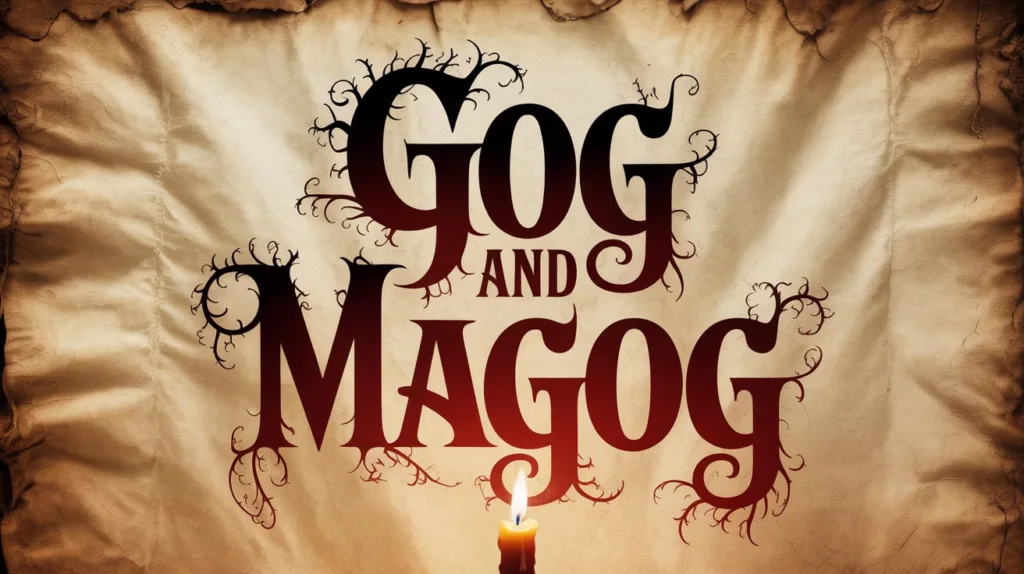Throughout Scripture, the number seven is repeatedly used as a symbol of perfection, completion, and divine order. It reflects God’s sovereignty and purpose in creation, redemption, and judgment. The recurrence of this number throughout the Bible serves as a reminder of God’s meticulous plan and His control over all things. Let’s dive into the rich tapestry of biblical references to the number seven, exploring its significance in creation, worship, prophecy, and divine judgment.
Seven in Creation
The first and most foundational appearance of the number seven occurs in the creation account. “In the beginning, God created the heavens and the earth” (Genesis 1:1), and over six days, He shaped and filled the universe. On the seventh day, God rested: “Then God blessed the seventh day and sanctified it, because in it He rested from all His work which God had created and made” (Genesis 2:3).
The seven days of creation established a rhythm for time itself, creating the seven-day week that humanity continues to follow. The seventh day, sanctified by God, became a pattern for the Sabbath, a day of rest and reflection on His completed work (Exodus 20:8-11).
Seven in Worship and Offerings
The number seven plays a significant role in worship and the sacrificial system given to Israel. In the instructions for the Tabernacle, God commanded a golden lampstand with “seven lamps” to provide light in His holy place (Exodus 25:37). This symbolized the presence of God and His Spirit among His people.
The sacrificial system also includes the number seven. On the Day of Atonement, the high priest was instructed to sprinkle blood “seven times before the Lord, in front of the veil” (Leviticus 16:14), signifying complete purification. During the Feast of Unleavened Bread, the Israelites were to eat unleavened bread for seven days (Exodus 12:15-20), a picture of cleansing and separation from sin.
At Jericho, the Israelites marched around the city for seven days (with seven priests blowing seven trumpets), culminating in the walls falling on the seventh day (Joshua 6:4-5). This act of divine judgment highlighted the completeness of God’s power in delivering His people.
Seven in Prophecy and Revelation
The prophetic and apocalyptic literature of the Bible heavily emphasizes the number seven, particularly in the book of Revelation. This book alone contains more than 50 references to the number seven, symbolizing God’s perfect and complete plan for the end of the age.
- Seven Churches: John addresses “the seven churches which are in Asia” (Revelation 1:4), representing the universal Church in its entirety.
- Seven Spirits: Revelation speaks of “the seven Spirits who are before His throne” (Revelation 1:4), a reference to the fullness of the Holy Spirit (see also Isaiah 11:2 for the sevenfold attributes of the Spirit).
- Seven Seals: The scroll in Revelation is sealed with seven seals (Revelation 5:1), which are broken to reveal God’s plan of judgment.
- Seven Trumpets: Following the seals, seven trumpets are blown by seven angels, unleashing God’s judgments on the earth (Revelation 8:2).
- Seven Bowls: Finally, seven bowls of God’s wrath are poured out upon the earth, marking the completion of His righteous judgment (Revelation 16:1).
The use of seven in Revelation underscores the perfection and completeness of God’s judgment and redemption. Each cycle of sevens demons/”>demonstrates His sovereignty over time, events, and His ultimate victory.
Seven in Covenants and Promises
The number seven also appears in the context of covenants and divine promises. After the flood, God made a covenant with Noah, sealed with the sign of a rainbow. Noah took “seven pairs of every clean animal” into the ark (Genesis 7:2-3), symbolizing the preservation of creation.
In Abraham’s life, the number seven is seen when he made a covenant with Abimelech at Beersheba, a name meaning “well of seven” or “well of the oath” (Genesis 21:28-31). This covenant marked a formal agreement, emphasizing peace and completion.
Jacob, too, encountered the significance of seven in his life. He worked seven years to marry Rachel but was deceived and ended up marrying Leah. He then worked another seven years for Rachel (Genesis 29:18-28). This pattern of sevens underscored God’s providential work in Jacob’s life (despite human scheming).
Seven in Divine Judgment
God’s judgments often involve the number seven, signifying their totality and divine origin. In Egypt, God sent “seven plagues” (Exodus 7-12) upon Pharaoh and his people, culminating in the death of the firstborn. These plagues demonstrated God’s power over false gods and His complete deliverance of Israel.
In Leviticus, God warned Israel that if they disobeyed His commandments, He would punish them “seven times more” for their sins (Leviticus 26:18-28). This repetition of seven emphasizes the completeness of God’s justice when His people reject Him.
The prophetic visions of Daniel also include sevens, particularly in the seventy weeks prophecy (Daniel 9:24-27). This prophecy outlines God’s timeline for Israel and the coming of the Messiah, showing His perfect control over history.
Seven in Redemption
The theme of redemption is closely tied to the number seven. Jesus performed many miracles involving seven, highlighting the completeness of His power and mission. He fed a multitude with “seven loaves and a few small fish” (Matthew 15:34-37), and after everyone had eaten, seven baskets of leftovers were collected. This miracle pointed to the sufficiency and abundance of His provision.
On the cross, Jesus spoke seven statements, known as the “seven words” of Christ. These words encapsulate the fullness of His sacrifice and His complete obedience to the Father:
- “Father, forgive them, for they do not know what they do” (Luke 23:34).
- “Assuredly, I say to you, today you will be with Me in Paradise” (Luke 23:43).
- “Woman, behold your son!” (John 19:26).
- “My God, My God, why have You forsaken Me?” (Matthew 27:46).
- “I thirst” (John 19:28).
- “It is finished” (John 19:30).
- “Father, into Your hands I commit My spirit” (Luke 23:46).
These seven statements reflect the completeness of His work on the cross, fulfilling the Law, the Prophets, and God’s plan of redemption.
Seven in Personal Application
The number seven challenges us to trust in God’s perfect timing and His completed work. Just as He rested on the seventh day, we are called to enter into His rest through faith in Jesus Christ (Hebrews 4:9-10). The sevenfold judgments in Revelation remind us to live in readiness, knowing that God’s plan will come to completion.
We are also called to reflect God’s perfection in our lives. Peter instructs us to grow in our faith through a sevenfold progression: “add to your faith virtue, to virtue knowledge, to knowledge self-control, to self-control perseverance, to perseverance godliness, to godliness brotherly kindness, and to brotherly kindness love” (2 Peter 1:5-7). This path to spiritual maturity mirrors the completeness that the number seven represents.
My Final Thoughts
The number seven is woven throughout Scripture as a symbol of God’s perfection, completeness, and divine order. From creation to redemption, from judgment to covenant, this number points us to the sovereign God who is working all things according to His perfect plan. As believers, we can rest in the assurance that He who began a good work in us will bring it to completion (Philippians 1:6).





 Get the book that teaches you how to evangelize and disarm doctrines from every single major cult group today.
Get the book that teaches you how to evangelize and disarm doctrines from every single major cult group today.